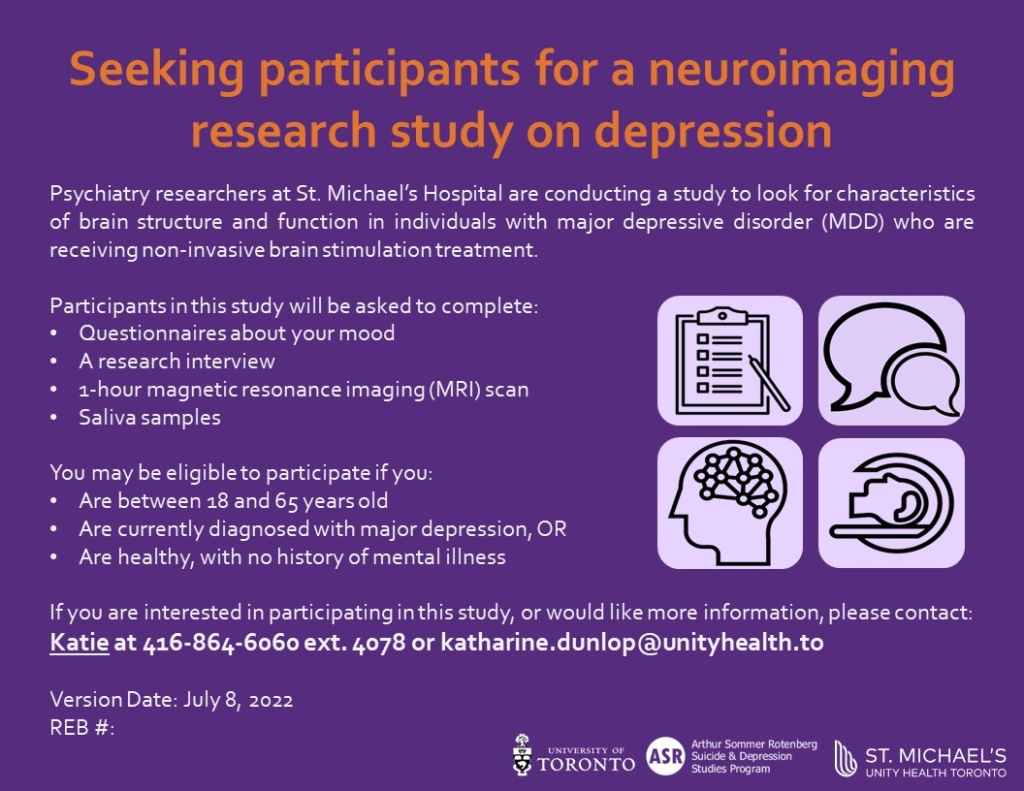We are currently conducting several studies on different aspects of depression and suicide risk. Read more about our currently active studies below:
Project Lead: Dr. Katharine Dunlop
The prevalence of suicide attempt in Major Depressive Disorder is about 20%. Risk for suicide attempt can be increased by many things such as negative life events, genetics, and changes in the way the body and brain function, and unfortunately we do not have reliable markers that predict an increased suicide risk. In this study, we will be collecting detailed information about participants’ psychiatric history and depression symptoms, as well as brain scans, over a single research visit. Our goal is to use this information to help us determine what best predicts suicide attempt history.
Please see the flyer for more information or contact Dr. Dunlop at Katharine.Dunlop@unityhealth.to.
Project lead: Dr. Katharine Dunlop

The purpose of the study is to help us determine what predicts response to non-invasive brain stimulation treatment in depression. In this study, we will be collecting detailed information about psychiatric history and depression symptoms, as well as brain scans and saliva samples. This study has two visits, one before and one after brain stimulation treatment for people with depression, and only one visit for people without depression. Each visit will take approximately 3-4 hours.
For more information, see the image above or email Katie at katharine.dunlop@unityhealth.to
Project lead: Dr. Sidney Kennedy
In this research study, Psilocybin is being tested for treatment-resistant depression when administered with psychological support from a trained study therapist. The main purpose of this study is to investigate how well two initial administrations of psilocybin works to lessen the severity of symptoms in treatment resistant depression. The study will also test the safety of COMP360 psilocybin and how well it is tolerated. You may be eligible to join the study if you are 18 years of age or older and have been diagnosed with major depression and have not responded to antidepressants.
For more information, please review our brochure or send an email to Kimberly Walker, kimberly.walker@unityhealth.to

1. effect of suicidality on social cognition